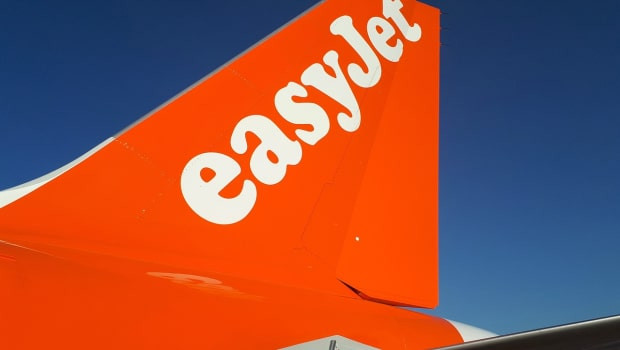Broker tips: Senior, easyJet, Direct Line

Senior surged on Friday after Barclays upgraded the shares to 'overweight' from 'underweight' and lifted the price target on the stock to 183.0p from 137.0p.
Barclays said despite Senior's 17% absolute underperformance year-to-date, near term, the stock still looks somewhat expensive.
"However, with 2020 trough earnings now firmly behind, restructuring activities completed and delivering run rate savings, 2022 begins a meaningful recovery to normalised earnings and free cash flow," it said.
"Our preference for OE versus AM remains, as narrow body (NB) rates increase off the bottom and AM-stocks have outperformed relative to OE."
"Q1 aero results saw companies maintaining guidance despite supply chain, inflation and China risk, and we continue to believe the relative performance of the subsector is likely to remain tightly correlated to the rate of recovery in global flight activity (which is seeing signs of China coming off its lows) and forward earnings revisions (which we expect to accelerate into H2)."
Barclays said the new target price implies 50% upside to current levels.
JPMorgan Cazenove downgraded easyJet to 'underweight' from 'neutral' on Friday and slashed the price target to 310.0p from 625.0p, arguing that non-fuel costs could continue to disappoint, as it took a look at European airlines.
JPM said easyJet achieved structural cost savings of around £250.0m during Covid-19, but noted that these were almost all offset by other cost pressures.
"The disruption costs this year may be temporary, but we expect the inflationary pressures to remain, so that non-fuel unit costs could disappoint in YE Sep 23," it said. "Fares may not be able to offset this if we head into a period of weaker consumer demand through winter and into 2023."
JPM said that given easyJet's exposure to slot-constrained airports, there is an increased risk that the company is impacted by further disruption and, hence, higher costs/lower yields.
"Our YE-Sep-23E profit before tax of £-229m is the lowest on the street on Bloomberg," it noted, as it placed the stock on 'negative catalyst' watch ahead of the group's upcoming results.
Analysts at Berenberg upgraded insurance provider Direct Line from 'hold' to 'buy' on Friday, stating the stock was now "too cheap to ignore".
Berenberg said Direct Line traded down by 12% on Thursday following rival Sabre's first-half profit warning, and while it recognises inflationary pressures in the market, it expects that DL will be able to manage these risks well.
In addition to this, the German bank, which stood by its 277.0p target price on the stock, believes the underperformance of Sabre was partly driven by company-specific issues.
"As such, we think Direct Line is now too cheap to ignore, trading on 7x 2023E EPS and a 2023E dividend yield of 13.4%. While there is risk to 2022E earnings, we expect motor insurance pricing to accelerate over the remainder of 2022, which will support earnings in outer years," said the analysts.
"Despite some of our concerns heading into the results, we believe the opportunity is now clear. Direct Line remains a well-run business with all of the capabilities to perform in the UK personal lines markets. Moreover, should weaker companies in the market face financial difficulties in 2022, this will likely reduce competition in the market and we would expect the larger, more dominant companies, such as Direct Line and Admiral, to capitalise."